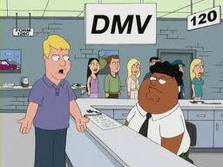 The Florida Fifth District Court of Appeal heard arguments this week on whether law enforcement can forcibly draw blood from certain DUI suspects. Currently, Florida law allows forced blood draws without a search warrant in suspected drunk driving cases involving death or serious injury.
The Florida Fifth District Court of Appeal heard arguments this week on whether law enforcement can forcibly draw blood from certain DUI suspects. Currently, Florida law allows forced blood draws without a search warrant in suspected drunk driving cases involving death or serious injury.
In this case, no injury or death was involved when the defendant was charged with driving under the influence. The defendant failed to keep his car in a single lane so he was stopped by Melbourne police. Law enforcement did obtain a search warrant for the blood sample.
Circuit Judge Maxwell did not allow the blood evidence into court; thereby prompting this appeal by the state. This issue has not come before any appeal court in Florida before and the ruling will impact 13 counties and become a benchmark for other judicial circuit courts in Florida.
In California, there is an implied consent law for chemical testing, Vehicle Code Section 23612. Under this statute, “any person who drives a motor vehicle is deemed to have given his or her consent to chemical testing of his or her blood or breath for the purposes of determining the alcoholic content of his or her blood if lawfully arrested for an alleged DUI.”
Once arrested for drunk driving, the person has a choice between a blood or breath test. If a person refuses to give either sample, and they are eventually convicted of drunk driving, their penalty will be increased according to Vehicle Code Section 23577.
Can an officer force you to take a blood test if you refused to give a sample? Yes, if the following conditions are met (People v. Sugarman): 1.) The circumstances require prompt testing; 2.) The arresting officer has reasonable cause to believe the arrestee is intoxicated; and, 3.) The test is conducted in a medically approved manner incident to a lawful arrest.
So how do you defend a drunk driving case that involves a refusal? You can challenge the lawfulness of the arrest itself. The officer must have had probable cause to stop and arrest you. Also, the prosecution must prove you were the driver of the car and you were in fact under the influence. Further, the officer may not have told you that you are obligated to submit to a chemical test or the admonition was confusing.
Your drunk driving charges may be dismissed if any of the defenses above fit your case. (Note, this is not an exhaustive list of defenses.) Contact an exclusively DUI defense firm if you want more information on how to defend you matter.
 San Diego DUI Lawyers Blog
San Diego DUI Lawyers Blog



 You are pulled over by a police officer suspected of driving under the influence. You take a breath or blood test. The result — .12 (or even higher). You are over the legal limit of .08% blood alcohol content (BAC) and you are arrested and charged with
You are pulled over by a police officer suspected of driving under the influence. You take a breath or blood test. The result — .12 (or even higher). You are over the legal limit of .08% blood alcohol content (BAC) and you are arrested and charged with 
 You are legally on a prescription or even an over-the-counter medication. You are driving your vehicle. Can you be pulled over, cited, and convicted of a driving under the influence (DUI) charge?
You are legally on a prescription or even an over-the-counter medication. You are driving your vehicle. Can you be pulled over, cited, and convicted of a driving under the influence (DUI) charge?